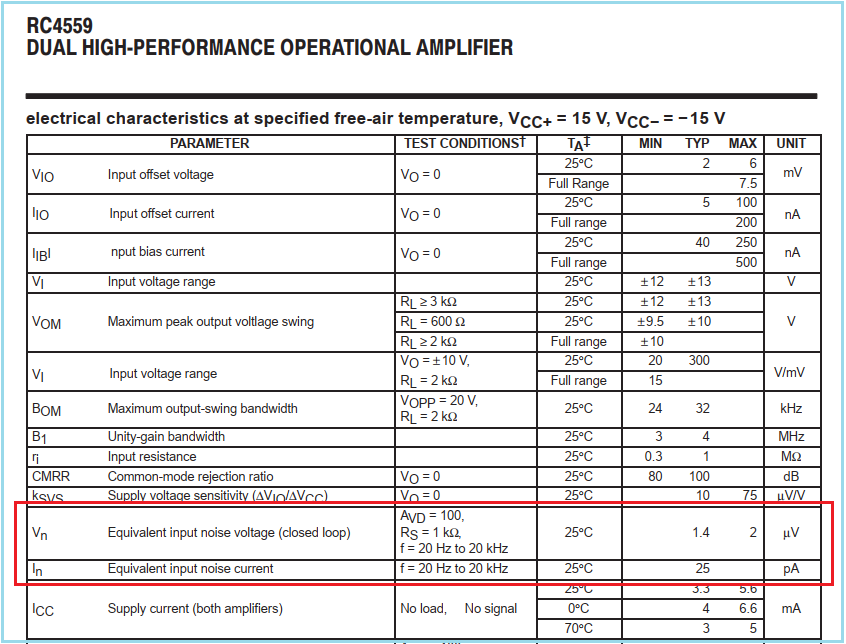Other Parts Discussed in Thread: RC4580, TL081, TL071
Hello,
I'm searching a replacement for the 4739 dual op amp (vintage guitar effect).
I think the RC4559 should be a good candidate, it's pretty similar. The pin-out is different but it's not a problem.
Is there any other component similar enough to replace the 4739?.
Thank you.


